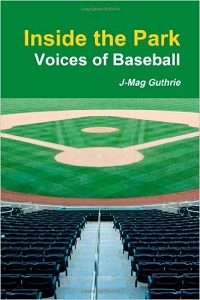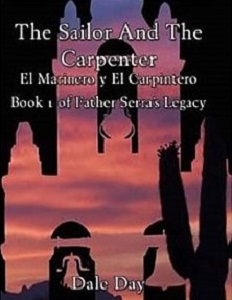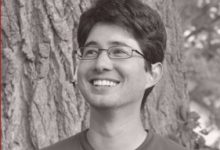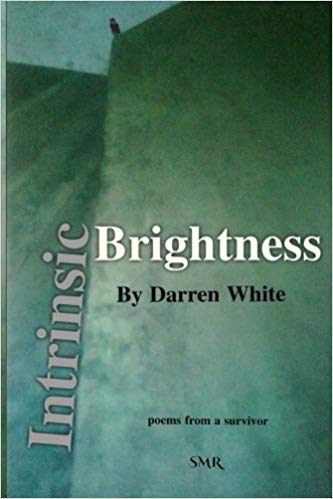Interview with Daniel McKeown
PiP interviews popular author Daniel McKeown (aka Sam), who gives us a sneak preview of his latest novel “First S.T.R.I.K.E”. Thank you, Sam!
Sam, please tell us a little about yourself.
There’s a saying in my part of the world: “Count your blessings after the bullets have stopped flying”. It was originally a witty anecdote used to lighten the brutal reality of The Troubles in Northern Ireland, but I adopted it as my mantra a couple of years after I first started to write. I’ve never been one for looking back with either fondness or regret. People talk of halcyon days and idyllic times, but I’ve always felt that looking to the past hinders my goals for the future. I’ve always been a forward-looking person. Most of my hobbies have become something more than merely pastimes. When I was 19, I joined my local gym and found a passion for lifting weights. As I realised that I was spending too much money on yearly memberships, I began putting together my own collection of weights and machines. Myself and my father worked 12-hour days to build a shed to house everything. Never once did I pause and wonder if it would ever see use; never once did ask myself if I was doing the right thing. I still have the collection today, added to over the years, and not a week passes that I don’t find time for at least one workout.
My interests are many and varied. I’ve been an avid reader since the age of 12, an interest that first began with two comic books that I started reading as an eight-year-old: The Beano and The Dandy. I used to tackle my chores with gusto so I could get my pocket money and catch up on the latest escapades of Desperate Dan and Winker Watson. That soon turned to books. I read my first The Hardy Boys when I was 13 and my life changed forever. Every Friday, Mom would take me, my brother, and my sister (who sadly and unexpectedly passed away when I was 16) to the library and I would grab as many books of The Hardy Boys as I could carry in my little hands. By Monday, I would have read them all. Soon after my sister passed, I began writing and it became a cathartic outlet for all the emotion bubbling inside me.
I’ve never looked back long enough to consider much of anything. I finished my first novel when I was 17 and confined it to a box under my bed, eager to get started on the next. I wrote eleven more over the course of the next thirteen years and each time I looked forward immediately after writing ‘The End’. I’ve never dwelt on any of them. My question was always, “What’s the next story?”. Even when Dereliction of Duty was accepted for publication, and I worked together with publishers and editors, I continued writing the sequel. When I came home from work, my first port of call was to boot my laptop and open whatever my latest project happened to be. I can’t describe this any other way than saying: every time I put my fingers to a keyboard to write anything, I love every single minute. It never has been, and never will be, a chore. To continue on the theme of guns, some people claim that a gun should be an extension of one’s body. In that regard, if I used a pen it would be an extension of my body. That is how I feel about the written word.
What inspired you to write Dereliction of Duty?
Dereliction of Duty was my eleventh novel, but a rewrite of the first one that I finished in 1999. The idea for the story started on a winter’s evening in 1996. My mother had invited a number of our relatives to the house to celebrate my father’s fiftieth birthday. Myself, my brother, and three of our cousins from my father’s side were conversing about how one might break into Area 51. We were all in raptures at each other’s ideas, but what my brother said stayed with me indefinitely: “Maybe there’s nothing in Area 51. It could just be a visible front to keep people’s attention away from the real top-secret military base somewhere else.” We all laughed and thought it was an absurd idea. After all, why would you waste money on a base filled with hundreds of people, in which nothing ever happened? It wasn’t until a couple of years later, when I read a story about a laundromat posing as a cover for a drug-smuggling operation, that the idea began to germinate. My premise was: what if a computer firm was actually a front for a top-secret government base and the people in charge were unaware that terrorists planned to storm it? What would an ordinary person do when confronted by the spectre of a terrorist attack? From those questions the idea for The Job (the title of the first novel I ever wrote, which would later be rewritten as Dereliction of Duty) spawned.
How did you find a publisher?
Large part trial and error, small part luck, smaller part right place at the right time. Finding a publisher would drive a teetotaller to drink. It can be one of the most soul-destroying experiences if the author allows it prey on their mind. You will be rejected. There’s not even a question about that. I approached twenty-two publishers before one accepted the manuscript for Dereliction of Duty.
Your next novel, First S.T.R.I.K.E., is due for publication in June/July 2014. What is the book about?
It’s a thriller set in America that takes place eighteen months after the aforementioned events of Dereliction of Duty. The novel’s antagonists have created a hybrid of Novichok and VX nerve gas (the two deadliest nerve agents known to man) and detonated one canister in the small town of Tooele, Utah, while threatening to do the same in numerous other populated areas. They have not revealed any demands or voiced any reasons for the attack. The President calls into action his top-secret anti-terrorist unit, codenamed S.T.R.I.K.E., and issues them carte blanche to find and apprehend the terrorists. Major Jack Carlos flies to Utah with a member of the CDC in order to uncover clues to the terrorists’ identity and/or next target. What he discovers instead is a conspiracy that reaches all the way into the halls of the White House, for it seems that someone high in the government wants the terrorists to succeed. Carlos not only has to find and apprehend terrorists in possession of a lethal bio-hazardous agent, but also avoid the target automatically placed on his back by one of the most powerful people in D.C..
What were the challenges (research, literary, psychological, and logistical) you experienced in writing your latest book?
Nerve agent is an obscure toxin that ranks as a level-four bio-hazard (these are known as a ‘hot agents’ because no cure exists for them) and is notoriously difficult to research. Beyond the usual suspects of Wikipedia and medical manuals, little documentation exists on VX and even less on the Russian Novichok. The UN Chemical Weapons Convention of 1999 decreed that all stockpiles of nerve gas had to be destroyed and all research on the agent discontinued. In that regard, beyond the fact that Novichok translates as ‘newcomer’ and can defeat all conventional CBRN (chemical, biological, radiological, and nuclear) suits, not much is known about it. Research involved contacting a friend in the States who put me in touch with a diagnostician. That helped with the symptoms and effects of both agents on humans, and from that I could extrapolate what my fictional agent would do in a hypothetical scenario. I also had to consult several texts on hot agents and the proper action required in the event of exposure, in conjunction with the number of casualties expected within a certain radius while taking into account prevailing winds. Further research was required to learn the basic layout and response protocols of the White House, as it plays a pivotal role in the novel’s conclusion.
Do you read reviews of your books? If so, do you pay any attention to them, or let them influence your writing?
I can’t imagine any author not reading reviews of their novel. They help us understand what works and what doesn’t. I let them influence my decision-making, but not to the extent that a review would ever shake my confidence or make me question my reasons for writing. As you gain more experience, you develop a thicker skin and learn that a bad review isn’t the end of the world. Reviews that criticise my work tell me more about it and myself than any five-star equivalent. As a huge football (soccer, if you must) fan, one of my idols was Paul Scholes. He shunned the limelight for his entire career, concentrating instead on letting his football do the talking. He once said that he didn’t like praise because it failed to tell him what he was doing wrong. I concur.
Will you follow a more traditional publishing route for ‘First S.T.R.I.K.E.‘ or self-publish?
For this novel, I will self-publish. The only challenge I face when self-publishing is knowing when the market is ready for my novel. You can advertise and shout from the rooftops until the cows come home, but if there isn’t a demand for what you’re offering, you might as well sell the books out of the back of your car. Timing and cultivating the market is everything. Get that right, you have a good chance to make a profit.
What are the biggest challenges faced by self-publishing and how will you overcome them?
By knowing my niche. I have almost one hundred pre-orders already because I’ve stoked the fires of interest with people who enjoyed the last novel and asked several times about the status of the sequel. By knowing your market, you put yourself one step ahead of the competition.
What importance do you place on cover design and why?
They say you should never judge a book by its cover, but the reality is that many people (myself included) do. If you see a cover with a man and a woman, there’s a good chance the novel is romance; if you see a single man with a gun, thriller; if you see arcane and mysterious symbols, religious action/adventure; and if you see a beast, horror. The cover is arguably as important as the story within. It’s the first thing a reader notices, and when you have rows upon rows of novels in a bookstore, any advantage you can get is a worthy one. The cover also tells you the theme of the novel. If you see a picture of the White House, for instance, you can bet the farm that the author/publisher didn’t include it because they liked the architecture or aesthetics.
What social media platforms do you use to promote your books and why?
I use Facebook and Twitter. I’m in contact with a number of fellow authors on the former, and I’ve built good relationships and rapport with the majority of them. Several have been beta readers for my novels. I in return have been same for them. I’ve also worked with several prolific WF authors through FB, including Duane Pescice (moderan) Mark (MJ) Preston, and Dean Sault (NaCl), and our very own Steph Kraner (Tiamat). It’s a great way of keeping in contact with authors, but also a good tool for promoting oneself. I tend to use it for the former much more than the latter.
Authors sometimes use ‘giveaways’ to help promote their book. Do you feel this is an effective form of marketing, and if so why?
It depends on the novel. I’ve given away several copies of my novels to beta readers, a few to people who helped me with research, and some to close friends. All I’ve asked in return is when they finish the novel – and if they don’t mind parting with it – they give it to someone who would be interested in reading it in return. Is that a free copy for someone else? Yes, but it’s also another potential review somewhere down the line.
Do personal experiences play a role in your writing, or is everything that happens in your stories the result of pure imagination?
I think personal experiences are always going to play a role, however slim, in anyone’s writing. They’re subliminal and cannot be avoided. That being said, I’ve never experienced most of the stories I’ve written. They’re the result of pure imagination on my part, but also research. Many authors perpetuate the notion that you must “write what you know” without realising that doing so places restrictions on you as a writer. I’ve never killed someone, but I can imagine the enormity of such an action. Writing about what you don’t know can be the source of some of the greatest and most profound experiences of your life. For instance, while researching for First S.T.R.I.K.E. I came on a piece of information that shocked me. It can become intolerably hot inside a CBRN suit. Some people have removed their headgear while working with level-four agents and subsequently died from exposure. If you had experienced that, you would be dead and therefore unable to write about it. Therein lies the problem with writing what you know.
When learning to write, what would you say is the most useful resource and what is the most destructive?
The most useful resource is books. The most destructive is the notion that you don’t need to read. As a writer, or aspiring writer, you should be reading as much as humanly possible. That should go without saying, but there are some who believe they can write without reading. Seldom will I ever say that something is an absolute necessity in writing, but reading is one of those.
Do you ever get writers block, or so stuck that you don’t know how to continue? If so, how do you overcome it?
I don’t believe writer’s block exists, therefore I can’t suffer from it. I think everyone who ever wrote reached a point where they didn’t know what to do next, but I’ve always believed that those who want to find a way will do so. There is nothing you cannot accomplish if you simply give it your undivided attention. For me, bad advice abounds on the topic. The only way to defeat any kind of mental block is to push through it. The more you delay, the worse it becomes.
Regarding the first page, how do you go about crafting an opening that will ensure the reader continues to page two?
By not hooking them on page one alone. Most seasoned readers don’t read the first page and make a decision. They may read five pages, or a chapter, and then decide whether they want the book. They’ve long since become aware of the trend of making page one interesting in order to entice a sale. For that reason, I place massive emphasis on my first chapter. That isn’t to say I neglect the rest, but that Chapter One is my bread-and-butter as an author. Page one will usually, but not always, open with action. For instance, the opening sentence of First S.T.R.I.K.E. is, “He arrived early”. No action, but enough information to compel the reader to keep reading and find out why the character arrived early. The opening line of Dereliction of Duty was, “The door to the stairwell crashed open and a heavyset man stumbled through it”. It’s much like a teaser. I give the reader a snippet of information that piques their curiosity and forces them to read on, but I don’t do this merely in Chapter One. Most chapters end on cliff-hangers so that the reader has to read on to find out what happened, but not all of them. The technique can become stale if overused.
What advice can you offer new writers?
To stop over-thinking the process. The answer to all the questions any writer will ever ask is ‘yes’. You can do anything you want so long as you do it well. There is no handbook to writing; no guide to every problem; no definite answer to every question. You get your answers from sitting down and doing the work. I’ve seen so many aspiring writers cripple themselves with fear because they asked too many questions. Just write. So what if it’s an incomprehensible babble? Make the next one less of an incomprehensible babble. As Samuel Beckett once said: “Ever tried. Ever failed. No matter. Try again. Fail again. Fail better”. The only way to produce brilliant writing is to first know how to produce useless writing.
What book are you reading now?
I’m re-reading Frederick Forsyth’s The Day of the Jackal.
What are your plans for the future?
I would tell you, but I’m afraid this interview would therefore become insufferably long.
Dan McKeown has been writing for over fifteen years and has a dozen novels to his name. As an avid reader of thrillers, his own work reflects his desire to read something which never ceases to surprise, thrill, and ultimately hook readers. A lifelong action junkie, he never shies from the opportunity to create exciting and tension-filled scenes that live up to the thriller tag.
He has seized the economic lull and returned to college where he is currently working towards a job which will allow him to teach the language he loves. The part-time course provides him with the opportunity to continue writing a series of thrillers about two ordinary men unwittingly drawn into the centre of terrorism.
When he isn’t hard at work behind the screen of a laptop, or studying for an upcoming exam, he can be found doing one of two things: reading, or working out in his home gym, where many of his best ideas have come to him.
McKeown lives in the countryside of South Armagh, Northern Ireland, where he is hard at work on the aforementioned series.
Follow Dan on Facebook and Twitter @Danmack888.
If you have any questions, please do not hesitate to ask!









